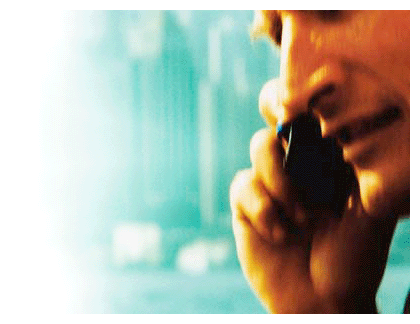Can we please move on?

Lately I have found myself having a similar conversation with a number of clients. The conversation begins with my client stating they want to increase their visibility within their organization and better position themselves to work at a more senior, strategic level. They want to be noticed and earmarked for succession by supervisors; to be seen as a thought leader by peers; and, ultimately, to position themselves as someone ready to participate in the larger decisions facing the company.
What is surprising to me is that these are the same people who will either completely fail to show for one of our scheduled sessions; send an email stating they need to reschedule at a minutes notice, or; arrive late and unprepared for our time together, and, then fail to apologize for their lack of professionalism.
I often find that the way a client manages their time with me is indicative of how they manage themselves with others. Therefore, some of the behavior I experience is serious cause for concern. If my client is unable to successfully arrive at our meeting – on time, prepared, and having followed through on the commitments they made at our last meeting – it is almost guaranteed that they engage in this (poor) behavior with others. How then are they to be seen as the kind of person and professional ready for more responsibility? Perhaps they are unaware of how some of their behavior is negatively impacting their professional advancement?
It seems that professionals today have forgotten what it means to be professional. We have allowed each other to become lazy, as what was once considered to be rude behavior has slowly become acceptable. Consider the following:
- When you are meeting with another, do you respond to emails and/or answer your phone?
- How frequently do you arrive late to a meeting and/or allow a meeting to run over the allotted time without re-negotiating this with the many others it will impact?
- How often do you cancel or reschedule meetings?
- What tone of voice do you use when you answer your phone? (In my experience, many will use a tone that would indicate I am interrupting or bothering them, when the fact is they chose to answer their phone. Some will even use this tone of voice when they have specifically asked me to call.)
I am frequently appalled by the behavior I witness from otherwise talented, educated, senior professionals. I once left a message for a very senior colleague but never received a return call. When I next ran into the colleague I inquired whether or not he had received my voice message. He had. When I asked why he never responded, he told me, “Oh, I don’t return phone calls”. What?! The irony is that this person had just purchased and was holding a copy of Daniel Goleman’s book Social Intelligence. I thought to myself, forget about reading the book, just focus on having the basic respect to return a colleague’s phone call.
From over 25 years of research there is one behavior that is seen to be more important than any other behavior for leaders to exhibit. This behavior is treats others with dignity and respect. If we fail to get this right, it almost does not matter what else we do. It is that important. One of the simplest ways to demonstrate respect is to show up on time, come prepared, and keep meetings to their allotted time. When we do this, we show others that we regard their time as valuable as our own. Another way to demonstrate respect is to listen, something that is difficult to do we when allow interruptions from our computer or iPhone. Regardless of culture, one of the easiest ways to demonstrate disrespect (whether we intend to or not) is to interrupt another.
I have worked with experienced, highly successful C-level executives and those new to management entirely. What I can tell you is that the more senior and successful the leader, the better the listener and, the more respectful, professional and gracious the person.
I am embarrassed to have to spend so much time coaching senior professionals on basic issues such as time management, the importance of treating others with dignity and respect, and reminding them that everything – EVERYTHING – they do matters. As a result, I am going to write one article on the topic and hope that by doing so we can move on to more important and necessary leadership conversations.
In his book, HOW. How what we do means everything … in business (and in life), Dov Seidman coins the term “out behaving the competition” and states that those organizations and its leaders who are able to bring professionalism back into our daily interactions will prevail in today’s marketplace. Treating others with the utmost respect is not a nice-to-do. It is business critical and, potentially, your competitive advantage.
Try This: From now on, treat every person you interact with as you would your most important client. Perhaps one day they will be just that …

